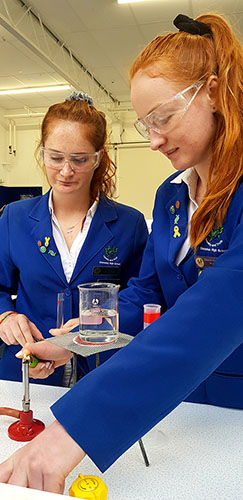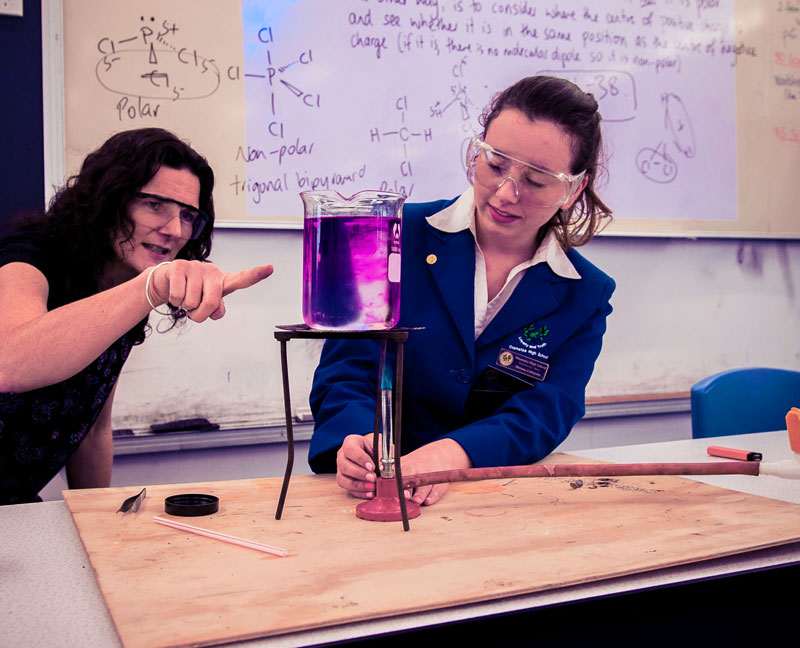Science is a field of study in which the students learn to evaluate patterns from the world around them in order to better understand physical and chemical phenomena, and life processes.
They use both analytical thought and lateral thinking skills to problem-solve in a diverse range of contexts. The inquiry learning approach is used in junior science, and hands-on contexts are used to connect with the students' world views wherever possible.

Year 11
In Year 11 we have an option of two different courses depending on the student's chosen academic pathway. One course offers internally assessed achievement standards. The other is a combination of 3 external achievement standards and internal standards. The external based course is the pathway a student would take if looking towards entering Level 2 chemistry, biology or physics.
Years 12 - 13
At Year 12-13 the students select from NCEA level 2-3 Physics, Chemistry and Biology courses, taught by specialist teachers. A mixture of external exams and internally assessed standards are provided. The modern learning environment involves google classroom pages, use of applets and simulations. An interactive, responsive classroom setting provides students with opportunities to discuss concepts, ask questions of their teacher and their peers, and consolidate learning during and after a lesson. Links to the everyday contexts they are familiar with are always provided.
The Year 13 course aims to leave the students with the required skills to succeed at university in science. Critical thinking skills, fair tests, the nature and philosophy of science are all integrated into the Year 13 courses.
Physics
Physics looks at moving systems, electricity, modern physics, and wave motion. The main areas of study are waves / optics, electricity and magnetism, mechanics and modern physics. From how a radio tunes in to the station to Einstein's famous equation, Physics is a subject for anyone who is keen to work on practical solutions to global issues and challenges, anything from geo-engineering to mitigate climate change or developing the latest smartphone camera.
Biology
Biology involves the study of living things both in isolation and in interaction with their environment. From the latest developments in genetics, evolution and microbial studies, - to the study of a critically endangered ecosystem, the life sciences provide the foundation for further study of the living world - both within and around us.
Chemistry
Chemistry involves the study of matter in all its incarnations, from the micro to the macro level. Atomic bonding, titrations, acids and bases and explosive reactions are all part of the joy of a chemistry course. The chemistry of the everyday is explored as well as industrial and commerical chemical processes.

Sessions & Illustration
Practical sessions and demos are used to illustrate and explain the concepts, and lessons are flexible and responsive to the students' innate curiosities - providing many unique lines of inquiry. Literacy and numeracy skills are taught organically as part of the course, as these skills underpin all of science education.

